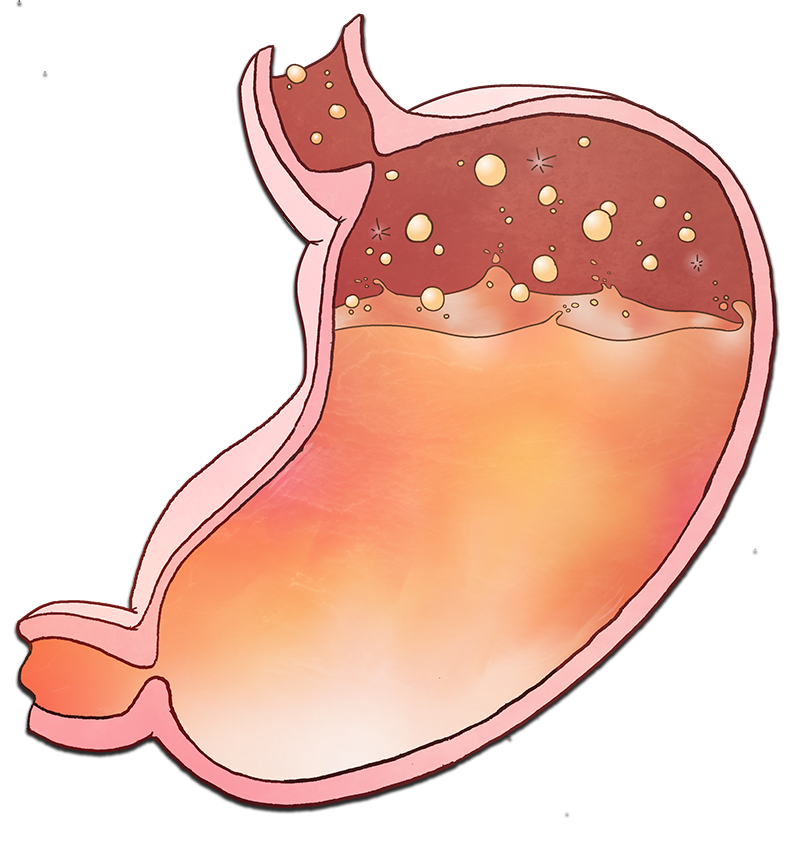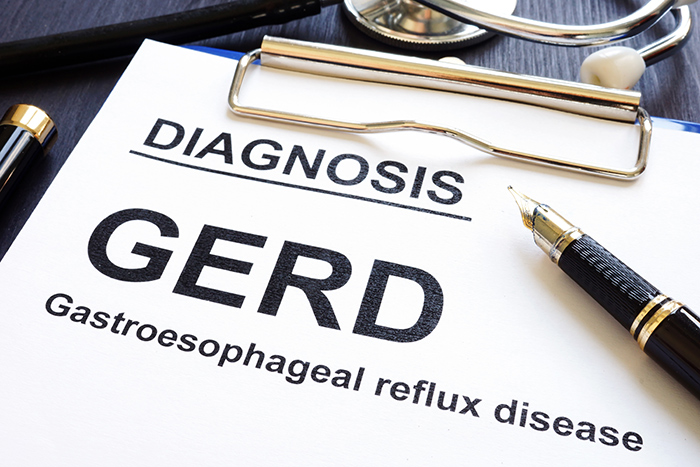GERD
Get TestedGastroesophageal reflux disease, more commonly known as GERD, is a condition caused by chronic and prolonged reflux of stomach acid and/or stomach contents into the esophagus, setting off an inflammatory, immune response and irritating the esophageal lining.

As you swallow, the lower esophageal sphincter (LES), a muscle at the base of the esophagus, relaxes to allow the food and liquids to enter the stomach. It then closes to keep the stomach contents in the stomach. With GERD, the LES weakens or relaxes abnormally allowing the stomach contents to flow back up into the esophagus.
Heartburn or acid reflux are the most common symptoms associated with GERD. A number of factors contribute to the development of GERD including medications, hiatal hernia, delayed stomach emptying, physical and emotional stress, nutrient deficiencies, food intolerances or sensitivities, hypothyroidism, small intestinal bacterial overgrowth, obesity, smoking, and alcohol.

The most common treatment for GERD prescribed by physicians begins with medications to reduce acid production. Antacids tend to provide immediate symptom relief without necessarily addressing the root cause. Long-term use of antiGERD medications may lead to nutrient deficiencies, IBS, and pneumonia among others. If you struggle with GERD, always follow your practitioner’s prescription but the ideal first step to reducing symptoms begins with a lifestyle and eating pattern free of specific triggers.
Lifestyle Behaviors to Help Minimize GERD
•Chew food well & slow down. Limit swallowing to 2 x per minute
•Consume whole foods, plant-based eating pattern
•Reduce your intake of packaged and processed foods
•Avoid common causes of reduced esophageal sphincter tone- caffeine, chocolate, citrus/tomato based foods, onions, garlic, fried foods, carbonated beverages, alcohol
•Remove all food allergies, intolerances, and/or sensitivities identified by testing or food elimination trials
•Eat until satisfied, not full
•Avoid lying down within 2-4 hours of eating. Raising the head of the bed may be beneficial
The Role of Food Sensitivities
Food triggers for GERD may differ from person to person. If you have removed common food culprits and are still experiencing acid reflux, food sensitivity testing can help to identify your specific triggers. Learn more about food sensitivities and the Alcat Test here.
Receive Our GERD Fact Sheet!
Sign up for our newsletter and receive a complimentary GERD Fact Sheet that includes information about this disorder and the 5R protocol we use with our clients.
